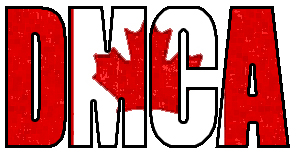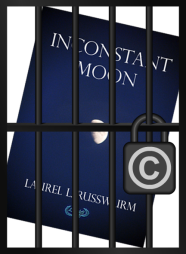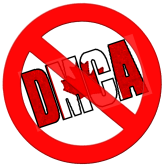 I should be getting ready for NaNoWriMo. The problem is that the danger to Canadian culture posed by Bill C-11, the so called “Copyright Modernization Act,” currently moving toward becoming law, is simply too great to ignore.
I should be getting ready for NaNoWriMo. The problem is that the danger to Canadian culture posed by Bill C-11, the so called “Copyright Modernization Act,” currently moving toward becoming law, is simply too great to ignore.
I can’t ignore this and expect to get anywhere with my next novel. So I’ve decided to try to post something about C-11 every day (after making my NaNoWriMo word count 🙂 Because both my self publishing efforts and writing my third novel during NaNo will claim most of my time, these posts will be much shorter than my usual blog posts.
The Canadian DMCA in Today’s News
Cory Doctorow blogged about the response received by a Canadian citizen in answer to their C11 query from Conservative MP Lee Richardson, a member of the Standing Committee on Industry. Since copyright law falls under the joint purview of the Ministry of Heritage and the Ministry of Industry, Lee Richardson ought to be pretty well versed in this issue. Richardson is quoted as writing:
If a digital lock is broken for personal use, it is not realistic that the creator would choose to file a law suit against the consumer, due to legal fees and time involved.”
— Conservative MP Lee Richardson
BoingBoing: Canadian Tory MP: Don’t worry about violating our stupid new copyright law, because we probably won’t catch you if you do
Cory Doctorow’s assessment is that this amounts to advice from the Government passing this law is:
“…you should go ahead and break the law because you won’t get caught.”
— Cory Doctorow
BoingBoing: Canadian Tory MP: Don’t worry about violating our stupid new copyright law, because we probably won’t catch you if you do
Now, I am not a lawyer, but if this is not the law’s intent, the law should say so. Just because the copyright holder might choose not to do this, is no guarantee that they won’t.
Bill C-11 clearly allows them to sue Canadians.
Particularly when there have been innumerable clear instances of corporate “patent trolls” suing unsuspecting citizens in the wake of the American DMCA and every similar copyright ‘reform’ enacted around the world.
If this is *not* the government’s intent, this part of Bill C11 must be changed.
The Canadian Government should not be encouraging citizens to ignore Canadian law.
what we can do
I believe there are various petitions being gotten up, but I urge all concerned Canadians to tell the government that we do not support the digital lock provisions in Bill C-11. Sending an email is a stronger message than signing a digital petition. The message you send doesn’t have to be long and involved. Just weigh in and tell them what you think before this law is passed.
Write to Members of the Legislative Committee on Bill C-11:
[28 October UPDATE 2011-10-28T15:48:49+00:00]
Bill C-11 Legislative Committee Chair: Glenn Thibeaultof the NDP has been named as the Bill C-11 Legislative Committee Chair
email: glenn.thibeault@parl.gc.ca
Dean Del Mastro, Conservative, Parliamentary Secretary to the Prime Minister
email: dean.delmastro@parl.gc.ca
Paul Calandra, Conservative Parliamentary Secretary to the Heritage Minister
email: paul.calandra@parl.gc.ca
Mike Lake, Conservative Parliamentary secretary to the Industry Minister
email: mike.lake@parl.gc.ca
Scott Armstrong, Conservative
email: scott.armstrong@parl.gc.ca
Peter Braid, Conservative
email: peter.braid@parl.gc.ca
Phil McColeman, Conservative
email: phil.mccoleman@parl.gc.ca
Rob Moore, Conservative
email: rob.moore@parl.gc.ca
Charlie Angus, NDP Digital Affairs and Ethics Critic
email: charlie.angus@parl.gc.ca
Tyrone Benskin, NDP Heritage and Cultural Industries Critic
email: tyrone.benskin@parl.gc.ca
Andrew Cash, NDP
email: andrew.cash@parl.gc.ca
Pierre Nantel, NDP
email: pierre.nantel@parl.gc.ca
Geoff Regan, Liberal Critic for Consumer Affairs
email: geoff.regan@parl.gc.ca
As well, you can write to Heritage Minister James Moore
email: james.moore@parl.gc.ca
Industry Minister The Honourable Christian Paradis
email: minister.industry@ic.gc.ca
Prime Minister Stephen Harper
email: stephen.harper@parl.gc.ca
and as always, your own MPP [Find your MP]
It is perfectly acceptable to send the same letter to all concerned, and although postal mail is taken more seriously, email is increasingly acceptable, particularly when time is of the essence.
If you have a blog (and if you don’t, it’s pretty easy to start one for free at WordPress) you can post your letter online, making sure to tag it with #C11 and #Canada and #Copyright. Talk to friends and family about this, as well as people in your social networks,because if this law passes as is, it will have serious repercussions to Canadian culture.
More Information
If you are looking for more information about this copyright law, you can use the search bar in my sidebar, or you can search the Internet. Bill C-11 is a word for word reincarnation of Bill C-32 in the last session of parliament, so searching for Bill C-32 will give you a lot of information and analysis.
The authorities I look to for C-11 information include:
- Russell McOrmond’s Digital Copyright,
- Howard Knopf’s Excess Copyright,
- and Michael Geist’s blog.
- Wayne Borean has blogged extensively about this,
- Cory Doctorow has visited the issue in Boing Boing,
- and you won’t want to miss Jesse Brown’s podcast interview with Heritage Minister James Moore on Bill C-32.




